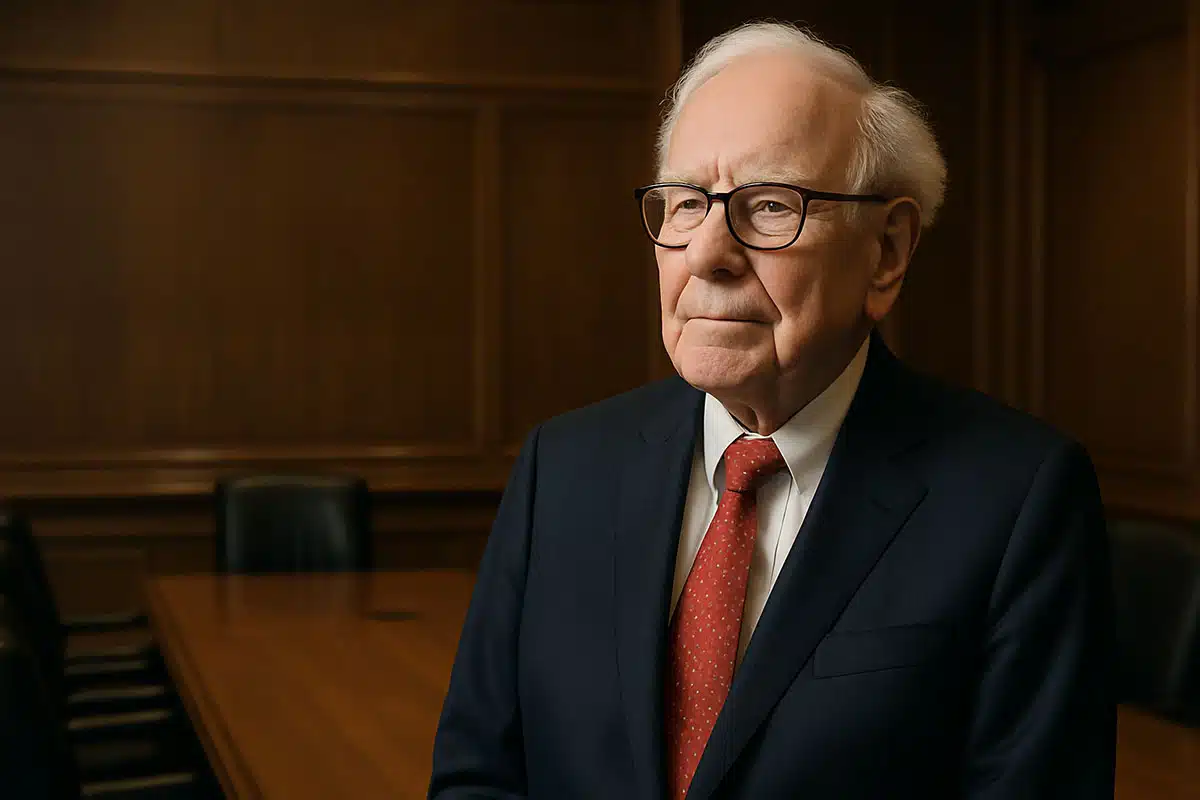
What Is A Recession Anyway?
Recessions vary in length and impact. Discover why forecasting them is often unreliable.

In May, legendary investor Warren Buffett announced he will retire as CEO of Berkshire Hathaway at the age of 95. Sixty years ago, Buffett took over Berkshire Hathaway, a struggling New England textile company, and built it into a powerhouse that operates everything from insurance companies to household brands like Duracell batteries. Along the way, he became known as the “Oracle of Omaha” due to his reputation for carefully identifying undervalued companies and sticking with them for the long haul. It is a strategy that has served him well. Today, he is the sixth richest person in the world with a net worth of about $154 billion.
Throughout his career, Buffett has shared some of the secrets to his success, often through his famed, and frequently funny, shareholder letters. Below are some of our favorite insights that continue to guide investors of all kinds.
“Occasional outbreaks of those two super-contagious diseases, fear and greed, will forever occur in the investment community… We never try to anticipate the arrival or departure of either disease. Our goal is more modest: we simply attempt to be fearful when others are greedy and to be greedy only when others are fearful.”
Investing is carried out by people, and people are emotional. As a result, human behavior plays a huge role in the movements of markets. The powerful impulses toward fear and greed can lead investors to hop in and out of the market en masse, often to their detriment. Buffett warns us to be wary when investors are “greedy,” as they can push prices up (sometimes unsustainably), leading to a crash. Similarly, when investors are fearful, they may miss out on powerful opportunities to invest in bargains during a market downturn.
The key to good investing is controlling emotional urges. Buffett has said: “The most important quality for an investor is temperament, not intellect. You need a temperament that neither derives great pleasure from being with the crowd or against the crowd.”
“Bubbles blown large enough inevitably pop. And then the old proverb is confirmed once again: ‘What the wise man does in the beginning, the fool does in the end.’”
During market bubbles, like the Dot Com bubble of the late 1990s or the housing boom that preceded the 2008 crash, prices rise rapidly beyond their true value driven by speculation and hype. Even investors who were initially skeptical might succumb to the urge to jump on the bandwagon, entering the market when prices are overly inflated and due for a crash.
Buffett has also said, “It’s only when the tide goes out that you learn who’s been swimming naked.”
Indeed, when a booming market reverses course, you do not want to be the one who has taken on too much risk and is left scrambling for your clothes.
You have probably heard us say investing is a long-term venture. This happens to be one of Buffett’s fundamental tenets as well. To wit: “Our favorite holding period is forever.” He has also said, “Only buy something that you’d be perfectly happy to hold if the market shut down for 10 years.”
The evidence is clear: Over the long term, the stock market has historically moved higher. Committing to long-term holding periods is the best way to ride out the inevitable short-term market fluctuations that come with the historical upward trend.
“Someone’s sitting in the shade today because someone planted a tree a long time ago.”
Unsurprisingly, there is a lot of overlap in aphorisms about planting trees and investing. Both require planning and an early start to ensure you reap their benefits. Likewise, a well-built investment plan requires attention and nurturing, which we can make easier through disciplined approaches like dollar-cost averaging (the practice of regularly investing a set amount of money no matter market conditions) and periodic rebalancing. But mostly, wealth and trees just need time to grow.
In that sense, Buffett’s “secrets” of success have never really been secrets. They are just simple truths that all investors can follow. Stay calm when others panic, resist the hype, invest regularly and think long term. But even with these insights, it is not always easy to stay the course, especially when markets get turbulent.
This post was written and first distributed by The Writing Company.
DISCLAIMER
Shore Point Advisors is an investment adviser located in Brielle, New Jersey. Shore Point Advisors is registered with the Securities and Exchange Commission (SEC). Registration of an investment adviser does not imply any specific level of skill or training and does not constitute an endorsement of the firm by the Commission. Shore Point Advisors only transacts business in states in which it is properly registered or is excluded or exempted from registration. Insurance products and services are offered through JCL Financial, LLC (“JCL”). Shore Point Advisors and JCL are affiliated entities.

Recessions vary in length and impact. Discover why forecasting them is often unreliable.

Prepare the next generation for wealth management with education, values and open family conversations.

Avoid reactionary investing after market drops. Learn why staying balanced may beat moving to cash over time.

Plan your business exit on your terms. Learn how to value your company, set goals and prepare for a smooth transition.